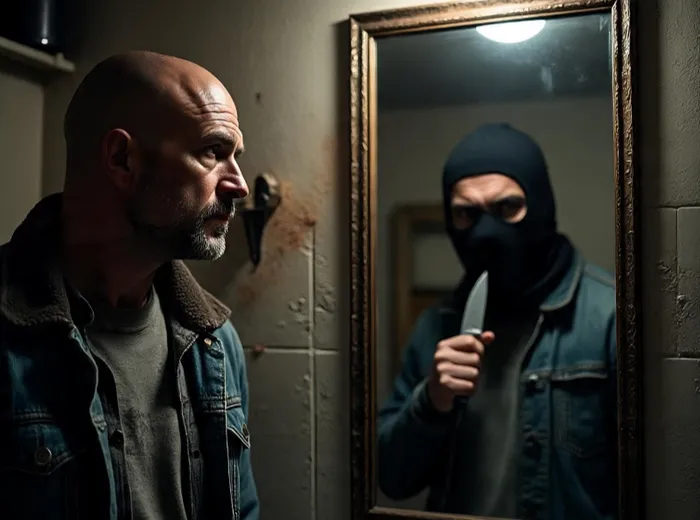
Think about it, if we slow down instead of stopping at a stop sign, if we drive while using our phones, if we (being able-bodied) park in a disabled bay because it’s convenient, if we keep the extra change a cashier hands us by mistake, if we use office resources for personal use, or if we pocket “souvenirs” from hotels – then we are walking the same road as the brazen criminals that we so freely condemn.
Image: Lance Fredericks / DFA Newspaper / Created using Meta AI
I wonder when would be a good time to start panicking.
Things are spiralling all around us in good ol’ Mzansi, and though we may believe that things are not so bad, I am afraid that if something isn’t done, pretty soon it will be.
Maybe it’s the fact that incidents of violence are spread out across the country that gives us a false sense of security, an illusion that we’re still OK, or that it won’t take much of an effort to fix this.
Recently, a Gauteng principal was stabbed while trying to break up a fight between learners. Then, in Klerksdorp, a video went viral showing several pupils attacking a teacher, throwing objects at him, and drenching him with water.
One commentator, in the wake of that incident, asked: What would have happened had that teacher, who restrained himself despite the humiliation, reacted? There would be an outcry on social media, and it would be the end of his career, he suggested.
But it’s not only schools. In Cape Town, two men were killed this past week when they were gunned down by four armed suspects – right in front of the Mitchells Plain Magistrate’s Court. If crime is lapping at the shores of our legal institutions, how long before the crime waves dash them to pieces?
Meanwhile, in Randfontein, 16-year-old Danté Diederik, a special-needs learner, was stabbed to death while waiting for his school bus. Witnesses say that Danté was eating his breakfast at his regular bus stop when he was attacked.
So what’s to be done? Violent retaliation does not seem to be an option.
I say this because in Barberton Extension in Mpumalanga, two suspected criminals were beaten and set alight with tyres by an enraged mob.
Having two young men executed for alleged housebreaking shows both the desperation of some communities and their lack of trust in the justice system. But vigilantism strips ordinary citizens of their nobility and dignity, and in many ways drags them down to the level of the criminal.
This cannot be the solution. But what is?
The other day I saw a woman walking with her purse, and the first thing I thought was: “She’d better hide that, or she could be mugged.”
But that’s wrong! That woman has every right to feel safe in the city where she pays rates and taxes. Why should she have to cower while criminals roam freely? Why are they the ones at ease, while ordinary people live nervously, checking over their shoulders?
What is it in our country that caters to bullies and hooligans, giving them more rope with which to hang decent people?
There’s another uncomfortable truth. Many of us who consider ourselves “law-abiding” are not saints either.
If we slow down instead of stopping at a stop sign, if we drive while using our phones, if we (being able-bodied) park in a disabled bay because it’s convenient, if we keep the extra change a cashier hands us by mistake, if we use office resources for personal use, or if we pocket “souvenirs” from hotels – then we are walking the same road as the brazen criminals.
The difference is only in scale. And this allows the rot to spread.
So … when do we panic? Maybe the better question is: when do we stop excusing it all? Because the longer we tolerate the slow decay – in others and in ourselves – the closer we edge to a society where fear is normal, dignity is rare, and the luxury of safety belongs only to the ruthless.
That makes me want to panic.